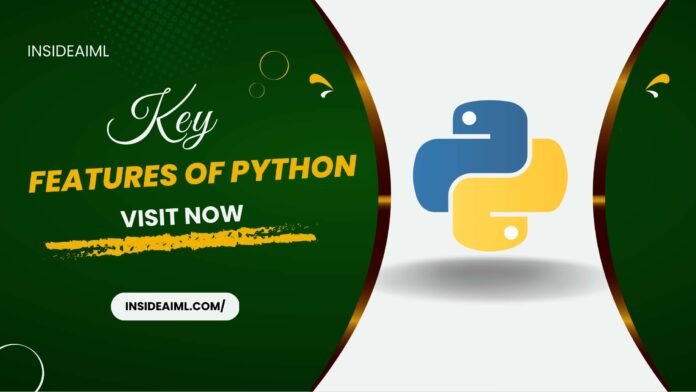Python is an incredibly popular and versatile programming language used by developers across the globe. It has many powerful features that make it a great choice for all kinds of projects, from small scripts to large web applications. In this article, we will be discussing 15 of the key features of Python that make it so powerful and popular.
Introduction
Before we dive into the 15 key features of python, let’s start by defining what Python is. Python is a general-purpose, high-level, interpreted language. It was first released in 1991 and has been gaining popularity ever since. Python was designed to be easy to read and understand, as well as easy to write and maintain.
Now that we have a basic understanding of what Python is, let’s take a look at the 15 key features of Python.
1. Integrated
Python is an integrated language, meaning that it can easily be integrated with other programming languages. This makes it possible to access features and libraries from other languages when writing Python code, giving developers more flexibility when creating their projects.
2. Easy to Read
Python aims to be readable. Its syntax is both clear and straightforward, making it easy to write and understand code written in Python. This makes it especially useful for beginners who are just learning how to program.
3. Easy to Write
Python code is relatively short compared to other programming languages, making it much easier to write and maintain. This makes it ideal for projects that require frequent changes or updates, as it can be done much faster than with other languages.
4. Easy to Learn
Python has a relatively shallow learning curve, making it easy to learn and use quickly. Even experienced developers can pick up the fundamentals in a short amount of time, while beginners can learn the basics in just a few hours.
5. Free
Python is completely free to use and distribute. This makes it an ideal choice for people who are on a budget or who don’t want to invest in expensive software licenses.
6. Object Oriented
Python is an object-oriented language, meaning that it allows for the reuse of code through objects and classes. This enables developers to create complex applications quickly and efficiently.
7. Dynamically Typed
Python is dynamically typed, meaning that variables do not need to be declared with a specific data type. This makes the code more flexible and easier to read, as well as reduces the amount of time needed for debugging.
8. Cross-Platform
Python can be used on multiple different platforms, including Windows, Mac, Linux, and more. This makes it ideal for developing applications that will be used on multiple systems without needing to rewrite the code for each platform.
9. Extensive Libraries
Python has an extensive library of built-in functions and modules that make it easy to perform complex tasks with minimal code. This makes it perfect for developers who need to create applications quickly without having to spend time writing their own functions or modules.
10. GUI Programming
Python can be used to create graphical user interfaces (GUIs) for applications. This makes it easy to create applications with a graphical interface and allows users to interact with the application in a visual way rather than having to type commands into a terminal window.
11. Large Community
Python has a large community of developers and users who are always willing to help answer questions or provide assistance when needed. This makes it easy for developers to find help when they are stuck or debugging their code.
12. Interpreted Language
Python is an interpreted language, meaning that code does not need to be compiled before running. This reduces development time significantly, as the developer does not need to wait for the compiler each time they make changes or updates to the code.
13. Automation
Python can be used for automation tasks such as website testing or automating mundane tasks within an application or website. This makes it perfect for developers who need to quickly perform repetitive tasks without having to manually click through them each time.
14. Security
Python has a number of built-in security features that help protect applications from malicious attacks or unauthorized access. This makes it ideal for developers who need additional layers of security when creating applications or websites.
15. Scalability
Python is highly scalable and can handle large amounts of data with ease. This makes it perfect for applications that need to process large amounts of data in real-time without any performance issues.
Conclusion
Python is an incredibly powerful and versatile programming language that has many features of python that make it great for all kinds of development projects. From its easy readability and writability to its scalability and security features, there is no doubt that it should be one of the top choices for any developer looking for a powerful language with the great features of python.





